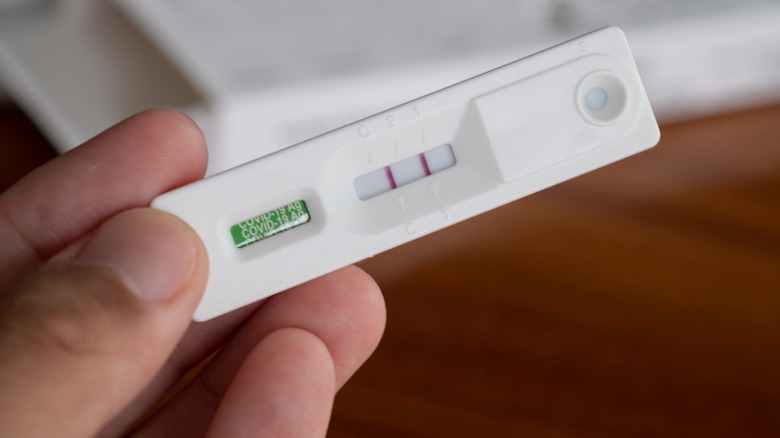Why COVID-19 Breakthrough Infections Might Not Be As Bad As You Think
A breakthrough case of COVID-19 occurs when a fully vaccinated person still contracts the virus, according to the Centers for Disease Control and Prevention. Symptoms will generally be less severe, and the fully vaccinated are less likely to develop a serious illness than the unvaccinated. The Department of Health and Environmental Control states that there have been 52,078 breakthrough cases since February 2021.
While the thought of having a breakthrough case might sound scary, it might not be as bad as you think. For one, most of the breakthrough cases experienced during the omicron surge were not as severe as those who were partially vaccinated or not vaccinated at all, according to Huffington Post.
That gives Dr. Jaimie Meyer, an associate professor of medicine at Yale School of Medicine, some hope. "The vaccines were not designed to prevent infection. They were designed to prevent severe disease, and they've done that extraordinarily well," she told Huffington Post.
Breakthrough cases tend to be milder overall
For those who are vaccinated, breakthrough cases have been relatively mild, Julie Parsonnet, epidemiologist and professor of infectious diseases with Stanford Medicine, told Huffington Post. That being said, the range of symptoms is wide — meaning symptoms could include something as simple as a runny nose. Parsonnet also said many will be completely asymptomatic and showing no symptoms at all.
Booster shots provide protection for about four months before their effectiveness begins to wane. Parsonnet said, "As antibodies wane and vaccines wane, we may see more colds — but I don't think we're going to see a big turn back to bad disease." She said that a runny nose, a cold, or a bout of diarrhea could be the worst of it. However, the risk remains higher for those who are immunocompromised. In those cases, booster shots are regularly recommended for those at higher risk.


